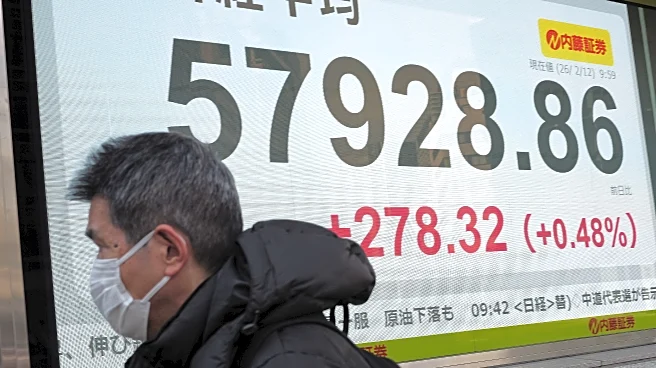What's Happening?
Illinois Governor JB Pritzker has condemned the Trump administration's deployment of armed immigration officers in Chicago, labeling it as 'authoritarianism' and an attack on Americans. The deployment, part of a broader federal crackdown on immigration and crime, has led to clashes between federal agents and protesters, particularly around the Broadview ICE facility. Pritzker, alongside other state and local officials, has criticized the presence of federal officers, arguing that it exacerbates tensions and undermines public safety. The governor has also expressed concerns about potential military escalation, following reports of a request for additional troops.
Why It's Important?
The situation in Chicago reflects the broader national debate over immigration enforcement and federal authority. Governor Pritzker's strong opposition highlights the tension between state and federal governments, particularly in Democratic-led areas. The deployment of federal officers in urban areas raises questions about civil liberties, the role of federal law enforcement, and the potential for increased militarization. This conflict could influence future policy decisions and public opinion on immigration and federal intervention.
What's Next?
Governor Pritzker and other officials are likely to continue their opposition to federal actions, potentially leading to legal challenges and increased public demonstrations. The situation may also prompt responses from civil rights organizations and could influence upcoming elections, as immigration and federal authority remain contentious issues. The outcome of this conflict could set a precedent for future federal interventions in local matters.
Beyond the Headlines
The deployment of federal officers in Chicago raises ethical and legal questions about the balance of power between federal and state authorities. It also underscores the political polarization in the U.S., with differing views on immigration and law enforcement. The situation could have long-term implications for federal-state relations and the future of immigration policy in America.












